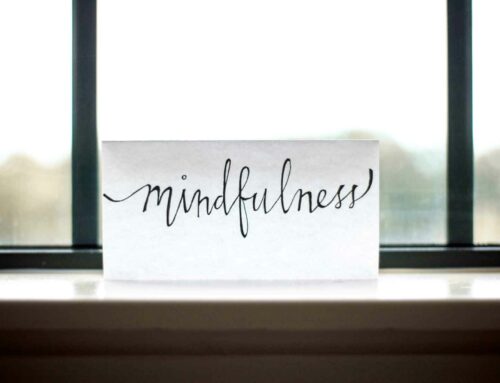Which is better when helping struggling teen girls, Relational Therapy or Behavioral Therapy? The very premise of DBT is that life is neither “black” nor “white”. It’s “gray”. There are very few, if any, absolutes in life. One important aspect of DBT is that “either/or” thinking gets us into big trouble. For example, if I have the mentality that my parents EITHER love me OR are overly strict, I am painting myself into an ugly corner. Rather, could I live in a “both/and” world? Could my parents be BOTH loving toward me AND overly strict? Is that possible? (Hint: If you didn’t interpret this question as rhetorical, please contact me for a special remedial DBT course.). I love this concept. Life is so much more manageable and enjoyable for me when I view it through a “both/and” lens. Now I don’t have to decide if my own children are EITHER difficult to manage OR good-hearted and well-intentioned. It’s easier for me to view them as BOTH difficult to manage sometimes AND good-hearted and well-intentioned.
I love working in a DBT treatment center. We have access to interventions and unique approaches in residential treatment that are simply not possible in the outpatient world. Before I started at Sunrise, I worked as a residential staff member and psychologist at a residential treatment center in Salt Lake City. This residential treatment center served a younger population, focusing on children as young as 5 years old up to age 14. This program was very “behavioral”. When I started at Sunrise, I was very excited to get more involved with a program that is “relational”. At my previous treatment center, the attitude was often: Behavioral Therapy = Good, Relational Therapy = Bad. In many relational programs, the attitude is often: Relational Therapy = Good, Behavioral Therapy = Bad.
The moment of self-discovery…
I am teaching the lesson about Pavlov’s dog and Skinner’s rats for the 862nd time as we discuss the behavioral principles of DBT in our weekly parent webinar. “Huh,” I think to myself, nearly audibly, “I thought this program was relational. Why am I covering classical and operant conditioning again?” Hold on. Hold on. Wait just a second. Can I, Ben Belnap, comfortably work in a program that is BOTH relational AND behavioral?
*Note: Dramatic internal monolog slightly embellished for dramatic effect.
I hear it all the time: “They’re a behavioral therapy program” or, “They’re relational.” This creates a crazy dialectic that puts us in a position to choose one or the other. True, a strictly behavioral therapy program might focus solely on reinforcement and shaping of behaviors. The drawback here is that the culture can sometimes become punitive if not managed with very close care. On the other hand, a strictly relational program would focus on the relationships between students and their therapists and staff as well as between other students in the program as a means to generate intrinsic motivation to change. The drawback here is that the culture in a strictly relational program can become overly permissive if not managed with very close care.
You know what? Professionally, I am much more comfortable thriving in an environment that is BOTH relational AND behavioral. And herein lies the beauty of a well-run DBT program in residential treatment—like (and I say this with absolutely NO bias at all) Sunrise. When managed with sensitivity, I can implement a behavioral intervention that rewards desired behavior without creating an overdependence on external reinforcement.
If implemented correctly, I can actually improve my relationship with a student through a behavioral intervention. For example, if I have a student who is constantly disrupting groups with obnoxious attention-seeking behavior, I can construct a very deliberate behavioral intervention to extinguish the undesired behavior. I will negatively reinforce the undesired behavior by ignoring it (Don’t get confused here. Negative reinforcement is the removal of a stimulus to increase or decrease a behavior—like my attention in this example. Negative reinforcement is not an inherently bad thing. Negative reinforcement is the removal of something that had been previously present as a result of the individual’s behavior. In this case, it would be my attention to the negative behavior. But I digress…). I will positively reinforce desired behaviors by increasing my attention to this individual when she is demonstrating appropriate behaviors for group therapy.
Now I have not only started down the path of extinguishing a negative behavior, but I have also laid the groundwork for improving our relationship by increasing our positive interactions. Now this student will be more likely to exhibit desired behaviors in the group setting because we have a stronger relationship.
Q: Relational or Behavioral Therapy? A: Yes
I often ping and pong between what is best for a child in the residential setting. Would the student be best served with EITHER a relational OR a behavioral therapy approach? See what I’ve done here?
The answer to this Either/Or question is simple: Yes.




